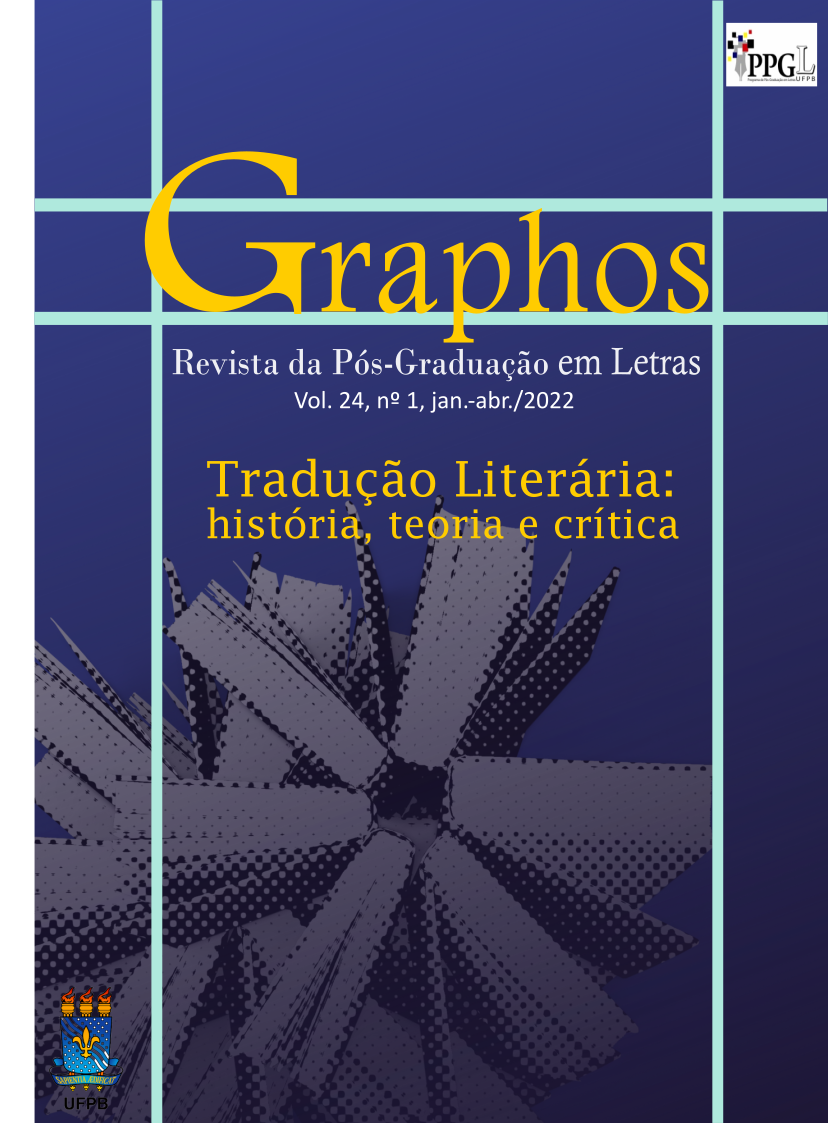Vol. 24 No. 1 (2022): Literary translation: history, theory and critics

The debate on translation has always been present among us, dating back to Cicero (Sec I, BC). However, it is from the second half of the 20th century onwards that translation has emerged as a disciplinary field, with James Holmes' paper as one of its epistemological landmarks. In addition to defining Translation as an object of study, Holmes named the emerging field Translation Studies, which seems to have been accepted by the Brazilian academic community, although, to a lesser extent, the term Tradutology is also used. Holmes' mapping has been expanded, and we now have a vast academic production in the field, both in theoretical and applied terms, which led Echeverri (2017) to point to a new moment, which he named as the metaturn, that is, a moment of introspection in which the discipline looks at itself through mappings and reflection as a form of evaluation and planning.
Translation Studies, especially Literary Translation Studies, which is the focus of this dossier, has found fertile soil in Brazil and in other countries and so this Dossier opens space for research that seeks to understand how translation of literary texts and Literary Translation Studies have been organized and that identify the critical and theoretical currents of literary translation, the agents - be them researchers, theoreticians, translators, publishers, funding agencies - , the norms that govern literary translation as well as the circulation of translated literary works. In short, it brings together mappings that contribute to the construction of the history of literary translation in Brazil (or in other countries) in order to guide future research and steps.






